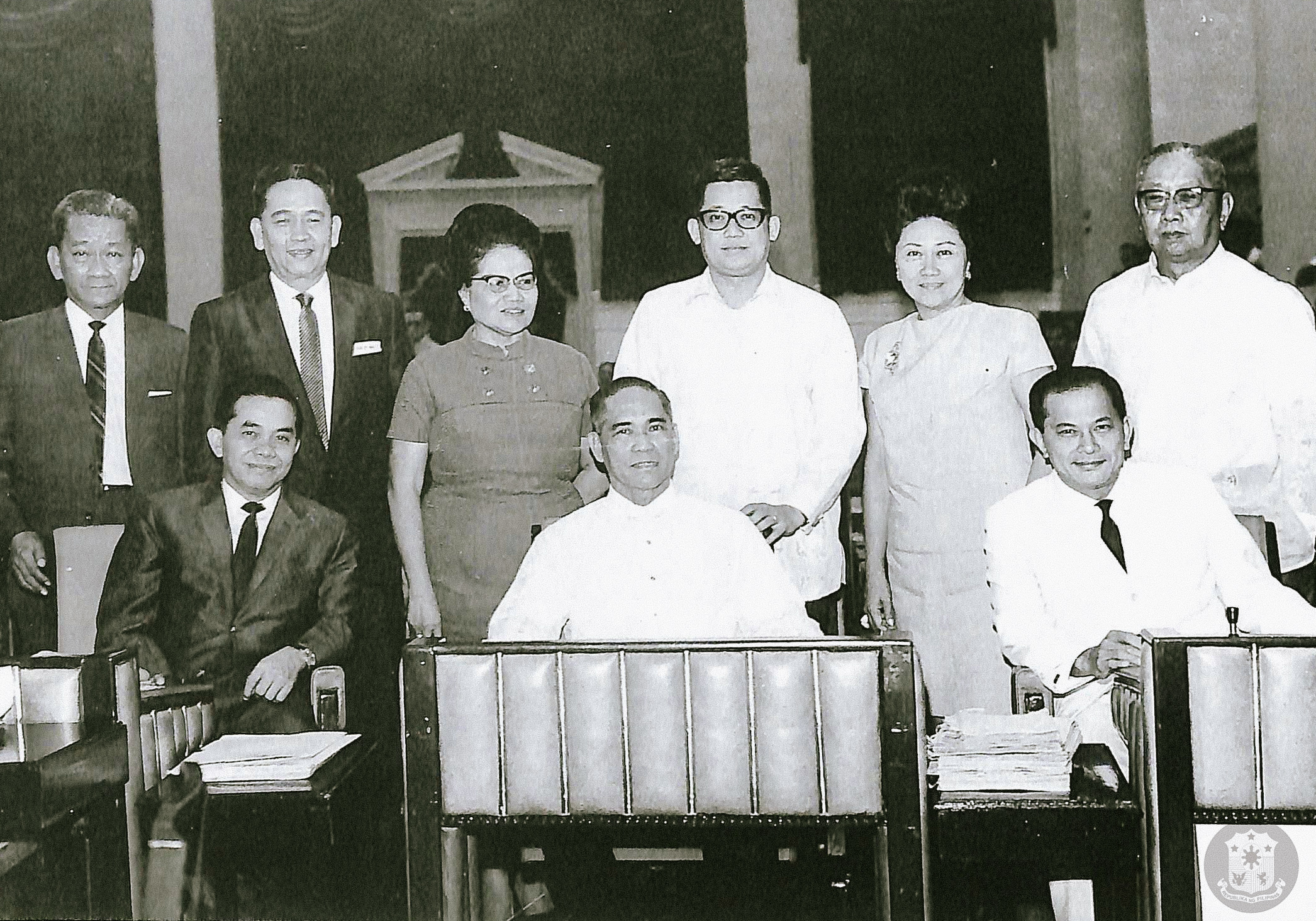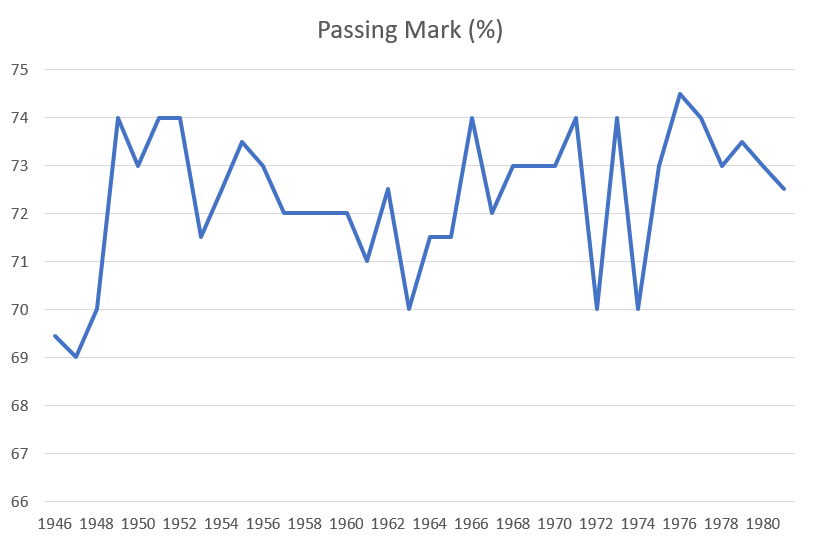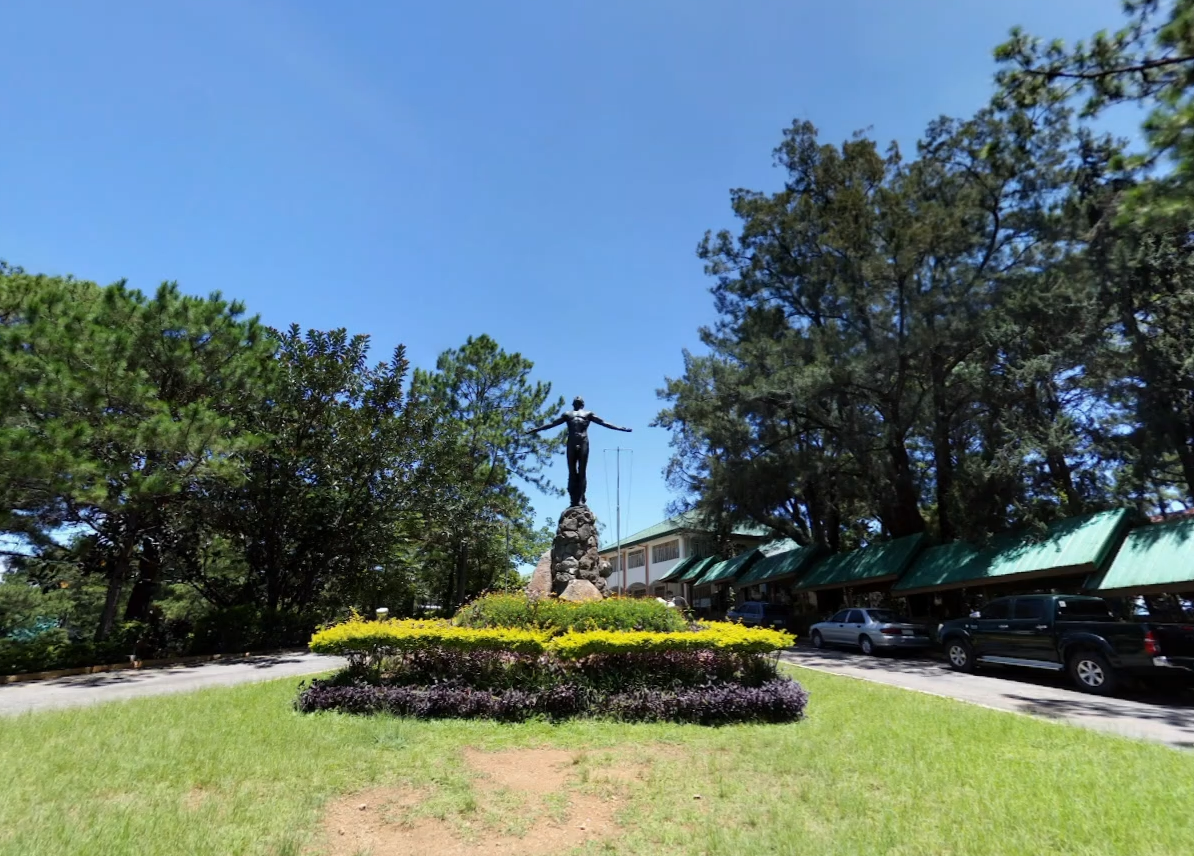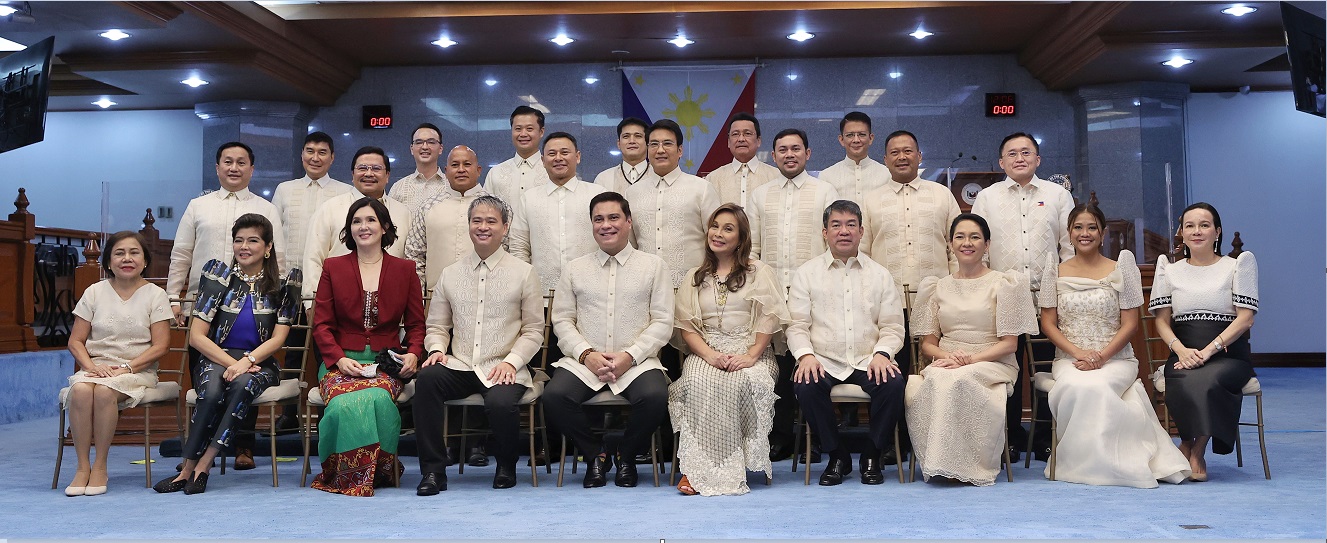|
Juan Liwag
Juan Ramos Liwag (June 12, 1906 – November 30, 1983) was a Filipino lawyer and politician who served as senator in the 5th and 6th Congress of the Philippines. He was among the few Filipino officials who have served in all three branches of the government. Early life and education Liwag was born on June 12, 1906, in Gapan, Nueva Ecija to Diego Liuag and Isabel Ramos. He finished elementary schooling as valedictorian at the Gapan Intermediate School, high school at the University of the Philippines, again as valedictorian, and subsequently hurdled the Liberal Arts course with honors. In 1932, he completed his law course at the University of the Philippines College of Law, cum laude, and placed second in the 1932 Philippine Bar Examinations. He is a member of Upsilon Sigma Phi batch 1927. Career Legal career In 1945, he began his public service as prosecutor in the Department of Justice, assuming later the position of head of the office of special prosecutors. Four years ... [...More Info...] [...Related Items...] OR: [Wikipedia] [Google] [Baidu] |
Senator Of The Philippines
The Senate of the Philippines () is the upper house of Congress of the Philippines, Congress, the bicameral legislature of the Philippines, with the House of Representatives of the Philippines, House of Representatives as the lower house. The Senate is composed of 24 senators who are elected at-large (the country forms one district in Philippine Senate elections, senatorial elections) under a Plurality block voting, plurality-at-large voting system. Senators serve six-year terms with a maximum of two consecutive terms, with half of the senators elected in staggered elections every three years. When the Senate was restored by the Constitution of the Philippines, 1987 Constitution, the 24 senators who were elected in 1987 served until 1992. In 1992, the 12 candidates for the Senate obtaining the highest number of votes served until 1998, while the next 12 served until 1995. This is in accordance with the transitory provisions of the Constitution. Thereafter, each senator electe ... [...More Info...] [...Related Items...] OR: [Wikipedia] [Google] [Baidu] |
University Of The Philippines Manila
The University of the Philippines Manila (UPM; ) is a Higher education in the Philippines#State universities and colleges, public research university located in Ermita, Manila, Ermita, Manila, Philippines. It is the oldest of eight constituent universities of the University of the Philippines, University of the Philippines System, and predates the founding of UP by three years. It was originally established on December 1, 1905, as the Philippine Medical School and later renamed as the University of the Philippines College of Medicine, UP College of Medicine and Surgery on June 10, 1907. In 1983 it was renamed as University of the Philippines Manila. UP Manila administers and operates the Philippine General Hospital, the largest medical center and the national referral center for health in the Philippines. The university is the home of the National Institutes of Health (Philippines), National Institutes of Health. This section led early testing for COVID-19. It continues to cond ... [...More Info...] [...Related Items...] OR: [Wikipedia] [Google] [Baidu] |
Department Of Justice (Philippines)
The Department of Justice (, abbreviated as DOJ) is under the executive department of the Philippine government responsible for upholding the rule of law in the Philippines. It is the government's principal law agency, serving as its legal counsel and prosecution arm. It has its headquarters at the DOJ Building in Padre Faura Street, Ermita, Manila. The department is led by the Secretary of Justice, nominated by the president of the Philippines and confirmed by the Commission on Appointments. The secretary is a member of the Cabinet. There is no incumbent secretary of justice as of May 22, 2025. History The DOJ traces its beginnings at the Revolutionary Assembly in Naic, Cavite on April 17, 1897. The ''Department of Grace and Justice'' was tasked with the establishment of a regime of law in the Republic, with Severino de las Alas at the helm. The department, however, was not included in President Emilio Aguinaldo's Biak-na-Bato Cabinet, which was established in Nove ... [...More Info...] [...Related Items...] OR: [Wikipedia] [Google] [Baidu] |
Upsilon Sigma Phi
The Upsilon Sigma Phi () is the oldest Greek-letter organization and fraternity in Asia. Founded in 1918, it is also the oldest student organization in continuous existence in the University of the Philippines. It has two chapters—an integrated chapter for the UP Diliman and the UP Manila campuses, and a separate one for the UP Los Baños campus. History Early years The Upsilon Sigma Phi was founded in 1918 by twelve students and two professors from the University of the Philippines Manila. It was formally organized on November 19, 1920, in a meeting held at the Metropolitan Restaurant in Intramuros, Manila where the fraternity elected its first officers (among which include Agapito del Rosario, one of the founders of the Socialist Party of the Philippines and later on Mayor of Angeles, Pampanga). Four months later, on March 24, 1921, the Greek letters ΥΣΦ were formally adopted, along with themes, rites, and motto. During its early years, Upsilon Sigma Phi invite ... [...More Info...] [...Related Items...] OR: [Wikipedia] [Google] [Baidu] |
Office Of The Solicitor General Of The Philippines
The Office of the Solicitor General of the Philippines (), formerly known as the Bureau of Justice, is an independent and autonomous office attached to the Department of Justice (Philippines), Department of Justice. The OSG is headed by Darlene Berberabe. The Office of the Solicitor General is the "law firm" of the Republic of the Philippines. The Solicitor General is the principal law officer and legal defender of the Republic of the Philippines. The Solicitor General shall have the authority and responsibility for the exercise of the Office's mandate and for the discharge of its duties and functions, and shall have supervision and control over the Office and its constituent units. The Office of the Solicitor General also determines the legal position that the government will take in the courts and argues in virtually every case in which the government is a party. The OSG is tasked to represent the people of the Philippines, the Philippine government, its agencies, instrumental ... [...More Info...] [...Related Items...] OR: [Wikipedia] [Google] [Baidu] |
Philippine Bar Examinations
The Philippine Bar Examinations is the professional licensure examination for lawyers in the Philippines. The exam is exclusively administered by the Supreme Court of the Philippines through the Supreme Court Bar Examination Committee. History The first Philippine Bar Exams were conducted in 1901 with only 13 examinees. The third Philippine Bar Exam took place in 1903 but the results were released in 1905. José L. Quintos of Escuela de Derecho de Manila (now Manila Law College) obtained the highest rating of 96.33%, future President Sergio Osmeña was second with 95.66%, future CFI Judge Fernando Salas was third with 94.5% and future President Manuel L. Quezon fourth with 87.83%. The bar exam in 1903 had only 13 examinees. The first Roll of Attorneys were listed in 1945 after the 1944 bar exam. After the 1903 exam, rankings were again avoided until the 1913 exam, with its first English exam and first top-ten list of topnotchers led by future president Manuel Roxas from UP Mani ... [...More Info...] [...Related Items...] OR: [Wikipedia] [Google] [Baidu] |
University Of The Philippines College Of Law
The University of the Philippines College of Law (often referred to as UP Law) is the law school of the University of the Philippines Diliman. Formally established in 1911 in UP Manila, it is the third oldest continually-operating law school in the Philippines. Since 1948, it has been based in UP Diliman in Quezon City, the flagship of the UP System's eight constituent universities. The college also holds extension classes at the Bonifacio Global City campus of UP Diliman in Taguig and the Iloilo City campus of UP Visayas. UP Law is noted for having produced the largest number of bar topnotchers and maintaining one of the highest bar passing rates among law schools in the Philippines. History It was George Malcolm who had first proposed the establishment of the College of Law within the University of the Philippines system. However, the Board of Regents of the University of the Philippines had initially resisted the proposal. Malcolm thus arranged for the Manila YMCA ... [...More Info...] [...Related Items...] OR: [Wikipedia] [Google] [Baidu] |
University Of The Philippines
The University of the Philippines (UP; ) is a Higher education in the Philippines#State universities and colleges, state university system in the Philippines. It is the country's national university, as mandated by List of Philippine laws, Republic Act No. 9500 (UP Charter of 2008), giving it institutional autonomy. Originally founded by the Insular Government, American occupational government on June 18, 1908, it was established through the ratification of Act No. 1870 of the 1st Philippine Legislature to serve as an "advanced instruction in literature, philosophy, the sciences and arts, and to give professional and technical training" to eligible students regardless of "age, sex, nationality, religious belief and political affiliation." The University of the Philippines system has 8 constituent universities (CUs) and 1 autonomous college: University of the Philippines Diliman, UP Diliman, which serves as the system's flagship university, University of the Philippines Los B ... [...More Info...] [...Related Items...] OR: [Wikipedia] [Google] [Baidu] |
Philippines
The Philippines, officially the Republic of the Philippines, is an Archipelagic state, archipelagic country in Southeast Asia. Located in the western Pacific Ocean, it consists of List of islands of the Philippines, 7,641 islands, with a total area of roughly 300,000 square kilometers, which are broadly categorized in Island groups of the Philippines, three main geographical divisions from north to south: Luzon, Visayas, and Mindanao. With a population of over 110 million, it is the world's List of countries and dependencies by population, twelfth-most-populous country. The Philippines is bounded by the South China Sea to the west, the Philippine Sea to the east, and the Celebes Sea to the south. It shares maritime borders with Taiwan to the north, Japan to the northeast, Palau to the east and southeast, Indonesia to the south, Malaysia to the southwest, Vietnam to the west, and China to the northwest. It has Ethnic groups in the Philippines, diverse ethnicities and Culture o ... [...More Info...] [...Related Items...] OR: [Wikipedia] [Google] [Baidu] |
6th Congress Of The Philippines
The 6th Congress of the Philippines (), composed of the Philippine Senate and House of Representatives, met from January 17, 1966, until June 17, 1969, during the first three-and-a-half years of Ferdinand Marcos's presidency. Sessions * First Special Session: January 17–22, 1966 *First Regular Session: January 24 – May 19, 1966 *Second Special Session: May 20 – June 18, 1966 *Third Special Session: August 15–27, 1966 *First Joint Session: April 25 and June 1, 1966 *Second Regular Session: January 23 – May 18, 1967 *Fourth Special Session: June 1 – July 5, 1967 *Fifth Special Session: July 17 – August 18, 1967 *Second Joint Session: January 30, February 13, February 27, March 8 and March 14–16, 1967 *Third Regular Session: January 22 – May 16, 1968 *Third Joint Session: February 20 – March 1, 1968 *Sixth Special Session: May 17–28, 1968 *Seventh Special Session: July 8 – August 10, 1968 *Eighth Special Session: August 12–31, 1968 *Fourth Regular Sess ... [...More Info...] [...Related Items...] OR: [Wikipedia] [Google] [Baidu] |
5th Congress Of The Philippines
The 5th Congress of the Philippines (), composed of the Philippine Senate and House of Representatives of the Philippines, House of Representatives, met from January 22, 1962, until December 17, 1965, during the presidency of Diosdado Macapagal. Sessions *First Regular Session: January 22 – May 17, 1962 *Second Regular Session: January 28 – May 23, 1963 *First Special Session: June 10 – July 12, 1963 *Third Regular Session: January 27 – May 21, 1964 *Second Special Session: May 22 – June 25, 1964 *Third Special Session: June 26 – July 8, 1964 *Fourth Special Session: August 3–15, 1964 *Fourth Regular Session: January 25 – May 20, 1965 *First Joint Session: March 1 – May 5, 1965 *Fifth Special Session: May 21 – June 24, 1965 *Sixth Special Session: June 30 – July 12, 1965 *Second Joint Session: December 14–17, 1965 Legislation The Fifth Congress passed a total of 1,192 laws. (Republic Act Nos. 3451 – 4642) Leadership Senate * President of the Sena ... [...More Info...] [...Related Items...] OR: [Wikipedia] [Google] [Baidu] |
Senate Of The Philippines
The Senate of the Philippines () is the upper house of Congress of the Philippines, Congress, the bicameral legislature of the Philippines, with the House of Representatives of the Philippines, House of Representatives as the lower house. The Senate is composed of 24 senators who are elected at-large (the country forms one district in Philippine Senate elections, senatorial elections) under a Plurality block voting, plurality-at-large voting system. Senators serve six-year terms with a maximum of two consecutive terms, with half of the senators elected in staggered elections every three years. When the Senate was restored by the Constitution of the Philippines, 1987 Constitution, the 24 senators who were elected in 1987 served until 1992. In 1992, the 12 candidates for the Senate obtaining the highest number of votes served until 1998, while the next 12 served until 1995. This is in accordance with the transitory provisions of the Constitution. Thereafter, each senator electe ... [...More Info...] [...Related Items...] OR: [Wikipedia] [Google] [Baidu] |








